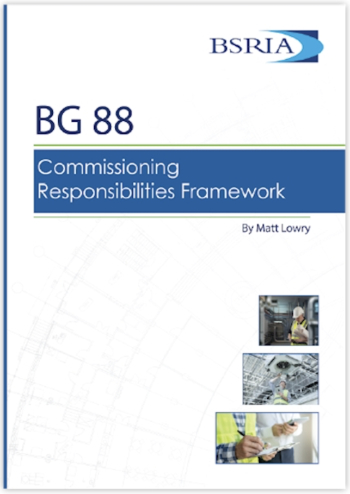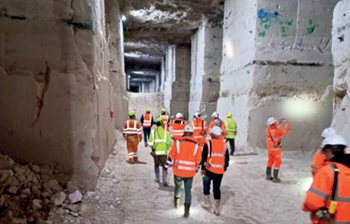What happens if you fail to comply with building regulations
Contents |
[edit] Introduction
The first set of national building standards was introduced in 1965. Now known as the Building Regulations, they set out:
- What qualifies as ‘building work’ and so falls under the control of the regulations.
- What types of buildings are exempt (such as temporary buildings).
- The notification procedures that must be followed when starting, carrying out, and completing building work.
- Requirements for specific aspects of building design and construction.
If you do not follow the building control procedures set out for handling your building work or you carry out building work which does not comply with the requirements contained in the building regulations, you will have contravened the regulations.
[edit] Prosecution and enforcement notices
A local authority has a general duty to enforce the building regulations in its area and will seek to do so by informal means wherever possible. If informal enforcement does not achieve compliance with the regulations the local authority has two formal enforcement powers which it may use in appropriate cases.
- If a person carrying out building work contravenes the Building Regulations, the local authority may prosecute them in the Magistrates' Court where an unlimited fine may be imposed (sections 35 and 35A of the Building Act 1984). Prosecution is possible up to two years after the completion of the offending work. This action will usually be taken against the person carrying out the work (builder, installer or main contractor).
- Alternatively, or in addition, the local authority may serve an enforcement notice on the building owner requiring alteration or removal of work which contravenes the regulations (section 36 of the 1984 Act). If the owner does not comply with the notice the local authority has the power to undertake the work itself and recover the costs of doing so from the owner.
A section 36 enforcement notice cannot be served on after the expiration of 12 months from the date of completion of the building work. A local authority also cannot take enforcement action under section 36 if the work is in accordance with a full plans application which the authority approved or failed to reject.
An appeal against a section 36 notice may be made to a Magistrates’ Court under section 102 of the Building Act.
Where an approved inspector is providing the building control service, the responsibility for checking that the building regulations are complied with during the course of building work will lie with that inspector. They will usually do this by advising you.
However, approved inspectors do not have formal enforcement powers. In a situation where the inspector considers building work does not comply with the building regulations and there is a refusal to bring it into compliance the inspector will cancel the initial notice. If no other approved inspector takes on the work, the building control function will automatically be taken on by the local authority. From this point on, the local authority will have the enforcement powers set out above.
[edit] Impact on selling a property
Notwithstanding the possibility of enforcement action, if the local authority or approved inspector considers that building work carried out does not comply with the building regulations and it is not rectified, no completion/final certificate will be issued and this is likely to come to light through a local land search enquiry during the sale of a property.
[edit] Related articles on Designing Buildings Wiki
- Approved documents.
- Approved inspector.
- Building codes.
- Building control body.
- Building notice.
- Building regulations.
- Building regulations completion certificate.
- Building regulations inspection.
- Dangerous buildings.
- Do the building regulations apply to existing buildings?
- Full plans.
- How long it takes to get building regulations approval and how long it lasts.
- Planning permission.
- Regularisation.
- Statutory approvals.
- Statutory authorities.
- The Building Act.
- The difference between planning permission building regulations approval.
- What approvals are needed before construction begins.
Featured articles and news
Commissioning Responsibilities Framework BG 88/2025
BSRIA guidance on establishing clear roles and responsibilities for commissioning tasks.
An architectural movement to love or hate.
Don’t take British stone for granted
It won’t survive on supplying the heritage sector alone.
The remarkable story of a Highland architect.
The Constructing Excellence Value Toolkit
Driving value-based decision making in construction.
Meet CIOB event in Northern Ireland
Inspiring the next generation of construction talent.
Reasons for using MVHR systems
6 reasons for a whole-house approach to ventilation.
Supplementary Planning Documents, a reminder
As used by the City of London to introduce a Retrofit first policy.
The what, how, why and when of deposit return schemes
Circular economy steps for plastic bottles and cans in England and Northern Ireland draws.
Join forces and share Building Safety knowledge in 2025
Why and how to contribute to the Building Safety Wiki.
Reporting on Payment Practices and Performance Regs
Approved amendment coming into effect 1 March 2025.
A new CIOB TIS on discharging CDM 2015 duties
Practical steps that can be undertaken in the Management of Contractors to discharge the relevant CDM 2015 duties.
Planning for homes by transport hubs
Next steps for infrastructure following the updated NPPF.
Access, history and Ty unnos.
The world’s first publicly funded civic park.
Exploring permitted development rights for change of use
Discussing lesser known classes M, N, P, PA and L.
CIOB Art of Building photo contest 2024 winners
Fresco School by Roman Robroek and Once Upon a Pass by Liam Man.
























Comments
What impact does failing to have Building Regs signed off on a rented flat? In this scenario the built project also differs from the submitted and approved planning drawings (won on appeal). What happens to the tenants?
The flat was built just over a year ago. Any help would be appreciated, the landlord is unresponsive on all fronts and very negligent. The flat is oddly very nicely finished and would not raise alarm bells.